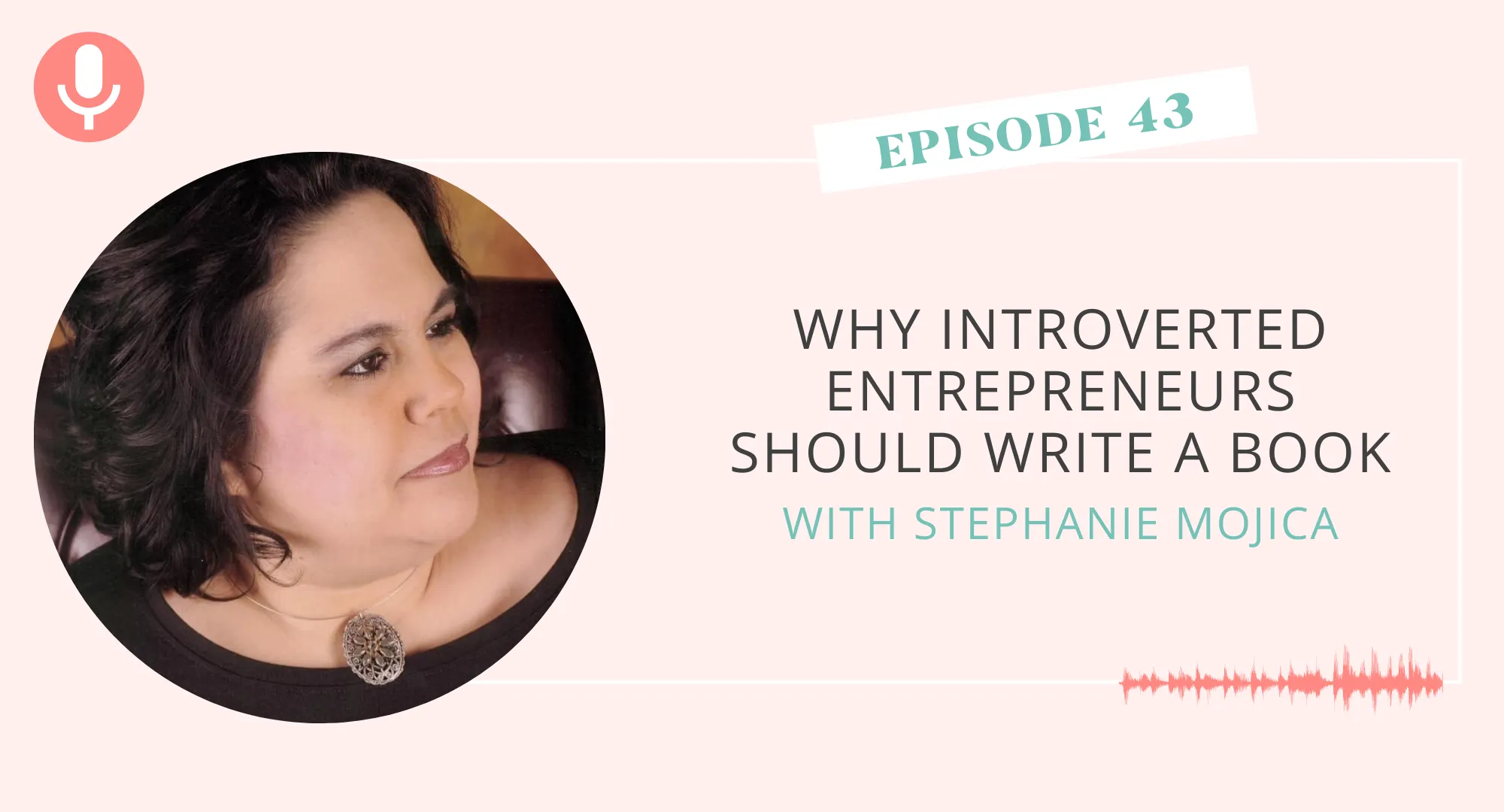Struggling to get the results you want from your emails?
Discover 15 simple yet powerful ways to elevate your email marketing and start seeing real engagement!
Grab your freebie!
Blog Categories
Helping small business owners, virtual assistants, and creative entrepreneurs grow their business.
Hi, I'm Tara! I'm a multi-passionate business and marketing coach.
learn more + get a copy:

Has writing a book ever crossed your mind? If it has, then what has been stopping you? For me, it is the part that comes after the writing process. You may either have too many ideas or feel that your story may be boring for others. If you are an introverted entrepreneur and want to be seen as the expert in your field, writing a book could be just what you need to gain that visibility. It may seem daunting, but not to worry because your questions and concerns will soon be answered. Inspiration might just strike!
Disclaimer: I earn from qualifying purchases. Some of the links on my website are affiliate links, which means, at no additional cost to you, I will earn a small commission if you click through and make a purchase.
Our guest on the podcast today is Book Coach Stephanie Mojica. She consults business owners, executive coaches, attorneys, and decision-makers to become the go-to expert in their field through the power of writing and publishing a book. She is also a regular contributor to “Entrepreneur.”
Her philosophy is that many otherwise accomplished professionals are getting lost in the crowd because they don’t have a published book that showcases their expertise and attracts potential clients to them. Drawing on her 17-year tenure as an award-winning journalist with publications such as “USA Today” and “The Philadelphia Inquirer,” among many others, her greatest passion is developing proven book writing blueprints and action plans that helps decision-makers increase their market reach and gain visibility with their “sweet spot” clients and customers, dream media outlets, and high-level podcasts.
In this episode, Stephanie and I dive into:
- Going from unhappy journalist to passionate book coach
- The importance of writing a book for introverted entrepreneurs
- General timeline for writing your book and getting it self-published
- Feeling like you have so much to say or nothing to say for your book
- …and much more
Overworked and Unhappy Journalist to Passionate Book Coach
Ever since she was about eight years old, Stephanie has been passionate about writing, publishing, and editing because she grew up in a family of authors and writers. When she went to college to study journalism, she took a creative writing course where her professors taught her how to edit books. She was getting paid as a student assistant to help with that. Stephanie has always had an eye for seeing errors and was a state spelling bee champion. From there, she was a newspaper journalist for 17 years. She loved her work and was published in USA Today, The Philadelphia Inquirer, and papers thick and small all over the United States, but because journalism jobs didn’t pay well, she always had to work side hustles. Those side hustles included editing books, teaching workshops about writing, and coaching others on how to write and publish their books.
About eight years ago, Stephanie began to feel very unhappy at her newspaper job. Along with the industry quickly changing, it also became an unhealthy environment. Everyone was expected to do more work for a lot less money, so she just quit her job one day. Not that she recommends quitting your job that way, but she had to push herself given the situation. She was living in rural Kentucky at the time and barely making ends meet, but she was starting to get more traction with her freelance writing and getting into coaching. She now feels blessed to not only be able to write and edit but to guide people through becoming writers themselves, especially those without writing experience.
The Importance of Writing a Book for Introverted Entrepreneurs
Even though Stephanie considers herself an ambivert, she recognizes the importance of book writing for true introverts. It is a great way to put yourself out there without doing things like videos, reels, or lives that make you feel physically or psychologically uncomfortable. Whether you are an introvert or not, you set yourself apart as the expert in your field when writing a book. For example, there are many more coaches now than ever before because of the pandemic. Before the pandemic, about 1 million people called themselves a coach like a life coach or business coach on LinkedIn. When Stephanie last checked a couple of months ago, it was over 8 million just on LinkedIn. That’s eight times the number of coaches.
Many people also say they do something and don’t know how to do it. Stephanie finds this to be true with the writing coaching industry, so when you write a book, you show that you are in it for the long haul. You are showing clients or speaker organizers that you know what you are doing but that you also have systems in place, and you are committed to your process. If you have a book that just came out or is coming out soon, the media is happy to interview you quickly and not ignore your pitch because they get so many pitches nowadays. There are just so many benefits, with passive income being one of them. She says that you may not make five or six figures out of book sales even with such benefits. The way she teaches it is really about publishing your book, but that it isn’t just a fancy business card for you. It draws people to you who want to work with you.
The Timeline For Writing a Book to Getting It Self-Published
When it comes to a general timeline, part of it, Stephanie says, depends on you and how much time you have to write your book. In her one-on-one program that lasts three months, she has had six people finish their book in about 67 to 83 days in the last few months. Clients meet with her weekly in this program and are devoted to writing or dictating 25 minutes to an hour each week. There have also been clients who needed a slower pace because they were writing a longer book, like a memoir, that took about nine to seventeen months.
In her group program, which is six months, the pace is slower and allows for Stephanie to go deeper into teaching things about marketing that she doesn’t necessarily have time for in her one-on-one program. She has a couple of clients four months into the current group program who are almost done with their first draft.
This may sound confusing, Stephanie says, but to break it down for most business people, if you’re writing about your business, you need about 20,000 to 40,000 words. That sounds daunting, but she promises that it’s not. If you’re speaking your book, which many people like to do, and even introverts will be surprised by this, if you’re just talking to yourself and telling a story, it’s not as painful as it sounds. Most people speak about 100 to 150 words a minute. If you do this for ten minutes a week, you will roughly have 1,000 words at the end of the week. You could get it done in five months if you are doing that. If you do that twice a week, the time will be even shorter; two and a half months. Stephanie says there is a wide range, which scares some people because they think it will take over their lives. It does not have to be 100,000 words, and it’s not something that has to take over everything else in your life.

Do You Feel Like You Have Too Much to Say or Nothing At All?
There are two types of people that Stephanie comes across when writing a book. Some think their story would be boring, and those with so many book ideas who have so much to say.
Is Your Story Actually Boring?
First and foremost, your story is not boring. In Stephanie’s programs, she offers writing prompts and things like that. There are so many online, too. She also goes over this topic in her mini-course, Get Your Book Out of Your Head and Into Reality, where you will think about who you are writing for and what they need. Most of the clients she works with take their readers through some kind of process in whatever field they may be in. You could write about one part of your process, like when you work with somebody. What’s the first thing you do with them? No law says you have to start writing from beginning to end, and that’s where many people get hung up. You could begin writing anywhere and then put that draft in the order you want later.
Too Much to Say or Too Many Ideas?
This is the more common thing that people face when writing and while working with Stephanie. She may have someone come to her with up to eight ideas, but she will tell them to choose one idea. Many books go unfinished because the person is working on numerous writings at a time, but you can come back to those once the first one is complete. Stephanie invites you to consider, out of all the millions of things you could write about, what do you most want to be known for? Also, you want to keep in mind things that interest you and who your ideal reader will be.
Your Next Steps After Writing Your Book
There is a process that Stephanie breaks down when working with her clients. She recommends that you need a good book cover, and she refers people to an excellent cover designer, but she doesn’t make any commission off that. The designer just does an excellent job, Stephanie says. Another thing she does with clients is formatting the book for Kindle and print. There are software programs online that do this too. You will need to edit or proofread your book. Then you will need to write the book description, which Stephanie teaches her clients how to do. From there, you will upload your book to Amazon. It can seem complicated, but the process is pretty simple. You have to make some investments when writing and self-publishing your book because you want it to be professional, after all.
Do You Need an Editor or a Proofreader, and What’s The Difference?
Do you know the difference between the two? A proofreader will look for typos, spelling errors, capitalization errors, punctuation errors, etc. There are different types of editors, but generally, an editor will go deeper into the sentence structure. They will also look for holes, especially if you’re writing a memoir or fiction. They will look for plot holes or things that aren’t explained well. Proofreading is an absolute minimum for any book because Stephanie has seen many self-published books with horrible typos, other mistakes, or how many reviews on Amazon mention it. You definitely want to invest in a proofreader. She doesn’t necessarily think you need to pay the extra editing service for most business books, but if you’re worried that your writing has something lacking, you might want to do that. Generally, you just need proofreading for a business-related book or self-help book.
Stephanie gave so many powerful tips and insights on all things book-related. She went from being an unhappy journalist to a passionate book coach. She shared her thoughts on the importance of writing a book as an introverted entrepreneur and the general timeline for writing your book and getting it self-published. You’ve heard her advice for those who think their story is boring or those with too many book ideas. As well as what your next steps after writing your book should be, the difference between a proofreader and editor, and which one do you need after writing your book.
She also mentioned her free guide called The 3 Things You Must Before Writing Your Book for some great details about scheduling your time, getting over your writer’s block, and making a plan. If you want to get more book writing tips, be sure to follow her on Instagram and if you want to work with Stephanie, check out her website.
Given Stephanie’s advice today, do you think that writing a book about your personal story or a business-related topic would benefit your audience most?
a breakdown of this episode
[1:22] Stephanie’s background as a journalist and how she moved into book coaching
[5:46] The top reasons why entrepreneurs should write a book, especially introverts
[12:09] The general timeline for writing your book, self-publishing, and getting it out into the world
[15:46] How to go about thinking that you either have so many ideas that you could write about or that your story would be boring
[21:27] The next steps to take after writing your book
[22:44] The difference between a proofreader, an editor, and which do you need after writing your book
If you enjoyed this episode, I invite you to take a screenshot and tag me on your Instagram stories @introvertcoach and tell me your biggest takeaway!
resources mentioned this episode:
- Thetarareid.com
- Join the Introvertpreneur Club
- Apply for a VIP Creativity Day
- Done for You Content Kits
- New Course: Content to Clients
- Waitlist for the 2022 Introvertpreneur Virtual Summit
- Stephanie’s Instagram
- Stephanie’s Facebook Group
- Stephanie’s Website
- Free Guide: 3 Things You Must Know Before Writing Your Book
Tara Reid is a multi-passionate business and marketing strategist for introverted entrepreneurs who want to grow without relying on hustle culture or social media. With 18+ years of online business experience, she helps course creators, service providers, and digital product sellers build sustainable businesses through evergreen marketing, blogging, SEO, Pinterest, and email.
As the founder of the Introvertpreneur Club, Tara’s mission is to show heart-centered entrepreneurs that you don’t have to be loud to be successful. You just need the right strategies that fit your personality.
When she’s not supporting clients or creating new resources, you can find her at home in Canada with her three rescue dogs, a cup of coffee in hand, dreaming up her next project.
The Introvertpreneur Podcast
listen in to the top rated business podcast that is designed for introverted entrepreneurs who want to grow + scale in a more sustainable and fun way!
Top rated podcast
This one's on me. Complimentary free stuff coming right up.
leaving so soon?
Look behind the curtain and see exactly what I do every week, month, and quarter, to market my business without social media (in under 5 hours per week)!
The Quiet Marketing Playbook
Take this free quiz and learn what your superpower is as an entrepreneur. You'll also get a curated list of my best resources and tips for using your superpower to your advantage!
What's your Introverted Superpower?
Best Free Resources:
dig into 'em now!
A business strategist and marketing coach who focuses on helping course creators, coaches, and service providers, build sustainable businesses without social media.
